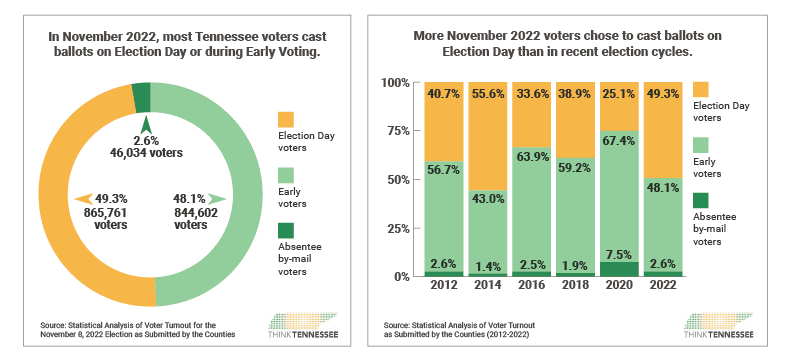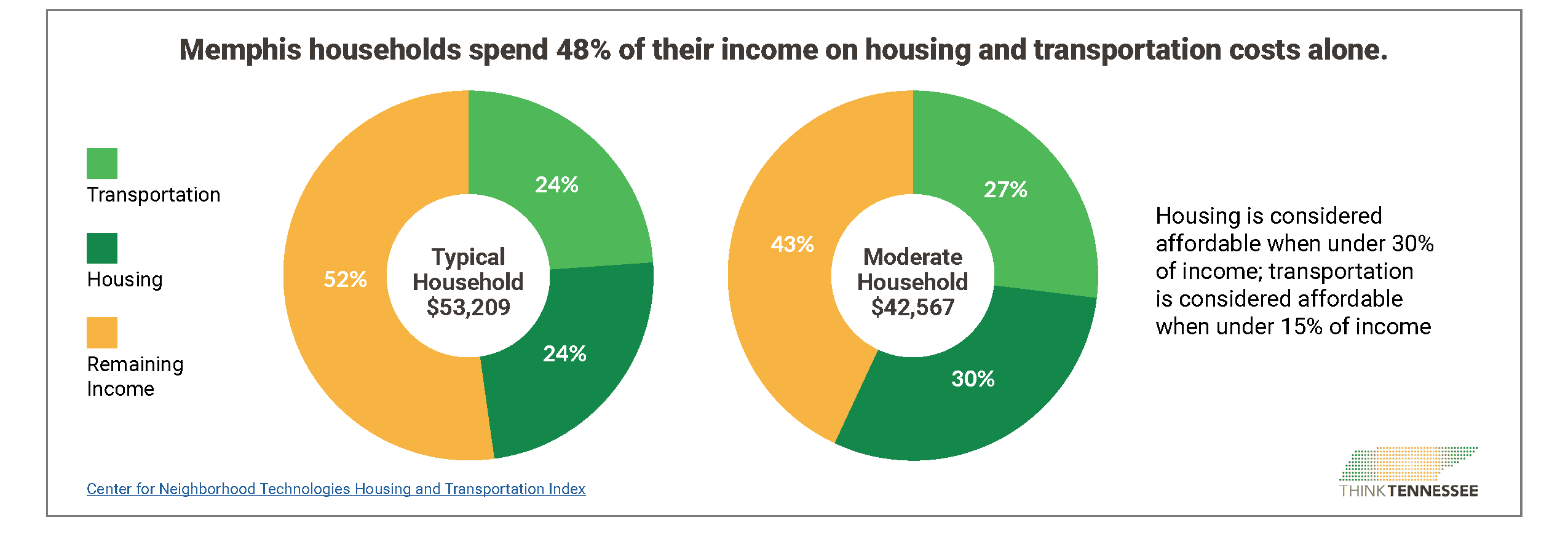NASHVILLE, TN – Tennesseans are driving more than ever, but the state’s current transportation funding sources are not generating sufficient revenue to keep pace with this growth or to expand available transportation options, finds the Changing Lanes policy brief released today by nonpartisan think tank ThinkTennessee. Despite having one of the highest per capita vehicle miles traveled (VMT) in the country, Tennessee spends fewer state and local dollars on transportation infrastructure than most other states. Tennessee also contributes fewer dollars to its transit agencies than other states, and none of its major cities have adopted dedicated funding for transit. Additional funding — particularly investment in multimodal transportation choices beyond driving — is needed to bridge this gap and improve health, safety, and financial security for Tennessee families.
“Tennessee’s population is increasing at a rapid rate, but our state’s current transportation system is struggling to keep up with our growth and does not provide enough affordable transportation options for Tennesseans,” said Erin Hafkenschiel, president of ThinkTennessee. “We hope that the data provided in this report will empower our transportation decisionmakers to reimagine the role of transit in Tennessee, which includes rethinking the way we fund projects as well as prioritizing efficient multimodal options to improve mobility and quality of life.”
Key Findings:
- Tennesseans drive more than our peers. Historically, Tennessee has invested heavily in road and highway infrastructure and underinvested in sidewalk networks and transit systems, leading to Tennesseans driving more than residents of other states.
- Tennessee uses a flat-rate gas tax to fund transportation and does not use debt financing for projects, relying instead on a pay-as-you-go funding model. As a result, Tennessee has both the second lowest rate of state and local spending per capita and per VMT in the nation.
- Tennessee contributes 9% fewer dollars to its transit agencies than other states, and none of its major cities (including Nashville and Memphis, two of the nation’s largest) have adopted dedicated funding for transit.
- Tennesseans have few transportation options other than driving, leading to negative outcomes, such as unsafe roadways, long commutes, and high transportation costs. Traffic fatalities in Tennessee increased 29.9% from 2011 to 2020. Roads are particularly unsafe for users who are not in a vehicle — pedestrians and cyclists saw traffic fatalities increase by 115.9% over the same period.
Among its recommendations, the think tank suggests working to identify additional funding sources as a way for Tennessee to redefine how it invests in transportation to improve quality of life for Tennesseans. Federal funding from the Infrastructure Investment and Jobs Act (IIJA) and the Inflation Reduction Act (IRA) could be considered as an additional source, as well as Tennessee’s Transportation Modernization Act, which enables the state to use new project delivery methods and generate additional revenue for transportation improvements. In addition to considering additional funding sources, the report proposes Tennessee officials maximize the capacity and improve the safety of existing roadway infrastructure, invest more in multimodal transportation options, and encourage community engagement in future planning to make transportation safer, more accessible, and more affordable throughout the state.
The complete State of Our State: Transportation and Mobility report can be found at thinktennessee.org.





